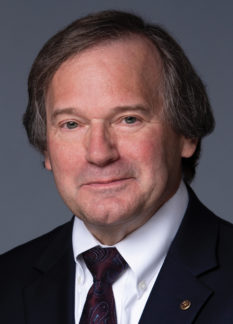Donations by U.S. Charities Abroad

It is not uncommon for U.S. tax exempt organizations to make donations to foreign charities.
However, with current instability in Europe, there has been a significant outpouring of charitable giving from U.S. citizens and from U.S. charities to foreign charities, with no less than one in four Americans making such a charitable contribution.
The Internal Revenue Service has specific regulations governing such activities. Since not every foreign charity is registered with the IRS, there has to be a way to identify which foreign recipients are eligible to receive charitable gifts. The IRS developed standards for making a good faith determination that grants made to a foreign organization are qualifying distributions and not taxable expenditures. This is especially important for U.S. grant-making private foundations. A proper determination avoids costly and time intensive expenditure responsibility efforts.
A private foundation may treat grants to certain foreign organizations as qualifying distributions; provided the foundation has made a good faith determination that the foreign organization is either a “public charity” or a “private operating foundation” (sections 501(c)(3) and 4942(j)(3)), and not a “disqualified supporting organization” (section 4942(g)(4)(A)(i)).
A foreign grantee that is a public charity or operating foundation that may receive a qualifying distribution (or a grant for which expenditure responsibility is not required) is referred to as a “qualifying public charity.” The regulations balance two important considerations:
- Removing barriers to international grant making by foundations (as well as by entities treated like foundations for these purposes) and
- Ensuring that foundations’ good faith determinations are informed by a sufficient understanding of the applicable law, are based on all relevant factual information, and are likely to be correct.
A good faith determination requires the written advice of a qualified tax practitioner. The regulations also require that all pertinent facts and circumstances be taken into account in determining whether a taxpayer has reasonably relied in good faith on written advice.
Therefore, a foundation and its managers may not rely on written advice if it (they) know, or has reason to know, that relevant facts were not disclosed to the qualified tax practitioner or that the written advice is based on a representation or assumption that the foundation or its management, know or have reason to know, is unlikely to be true.
Written advice of a qualified tax practitioner serving as the basis for a good faith determination must be “current.” Written advice will be considered current if, as of the date of the distribution, the relevant law on which the advice was based has not changed since the date of the written advice and the factual information on which the advice was based is from the organization’s current or prior year. Written advice based on support over a test period of five years will be treated as current for two years.
Knox Law is capable of applying the regulatory standard and providing your foundation with the applicable advice prior to making a foreign gift. Also, Knox Law is a member of Lawyers Associated Worldwide (LAW) with 100 member firms located in 188 jurisdictions around the world. Information that may not be readily available regarding a foreign recipient may be available from a member firm situated in the recipient’s country.
Legal Advice Disclaimer: The content of this website is provided for general information purposes only. It should not be used as a substitute for consulting an attorney for legal advice regarding the reader's own affairs. Knox McLaughlin Gornall & Sennett, P.C. is not responsible for the content provided on any third-party website which may be accessed via links provided by this site.



